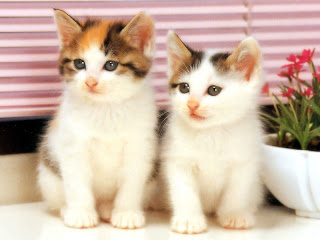 Whether you're a veteran in the field or yet a newbie learning the ropes of freelancing, you will notice some jargons thrown left and right. The funny thing is that the key terms used in freelancing sites themselves become sources of confusion, if not entertainment.
Whether you're a veteran in the field or yet a newbie learning the ropes of freelancing, you will notice some jargons thrown left and right. The funny thing is that the key terms used in freelancing sites themselves become sources of confusion, if not entertainment.I'm not just talking about misspelling "public" as "pubic" or confusing "loose" with "lose." Below are 3 of the most frequently confused pairs:
Copyright vs. Copywrite
There's no such thing as a "copyrighter." However, there are copywriters.
There's no such thing as a "copywrite." However, copyrights do exist and misunderstanding the term is one of the critical booboos that many aspiring freelancers make.
Copyrights include an entity's rights (usually the author's) to distribute, copy and adapt a piece of work. A copywriter is somebody who writes copies with conversion in mind. Landing pages that try to get you to download an e-book, subscribe to a service or pay for a product are the works of a copywriter.
Unique vs. Original
To the "man of the street," the two terms are synonymous. In the freelancing world, they're not. An original article is always unique, but not all unique pieces of work are necessarily original.
There are presently no metrics to gauge the originality of articles. Originality is a purely subjective measure of a piece of work. To clients and the general audience, something that stands out as novel, fresh and creative is original.
Meanwhile, uniqueness measures the percentage of work that is not considered to be duplicate content by the search engines. Most employers believe that your article is unique when it passes Copyscape. In addition to Copyscape, tools such as Dupe Cop and Jet Checker will tell you the percentage of duplicate content your write-up has. You then subtract the number from 100 to derive the percentage of uniqueness.
The unofficial percentage of duplicate content allowed is a maximum of 30 percent, but many clients now demand higher "standards." Don't be surprised if you're asked to submit articles that are at least 95 percent unique.
Plagiarism vs. Copyright Infringement
Plagiarized work does not attribute the source, but did you know that you can still be guilty of copyright infringement even if you do cite your sources?
While plagiarism happens when you post something without source attribution, copyright infringement stems from the exercise of copyrights without proper authorization. A common example of copyright infringement is posting the lyrics of your favorite pop song or posting the text of your favorite book in toto in your blog.
It's clear who the singer, song writer or author is in both cases... Yet, it's not clear whether you obtained their consent or even bothered to inform them that you distributed their work online.
What other jargons have you come across in freelancing sites? Did you consider some of the mistakes as common booboos or critical errors? Were you able to distinguish one from the other? Share them here and help me grow this list. *




